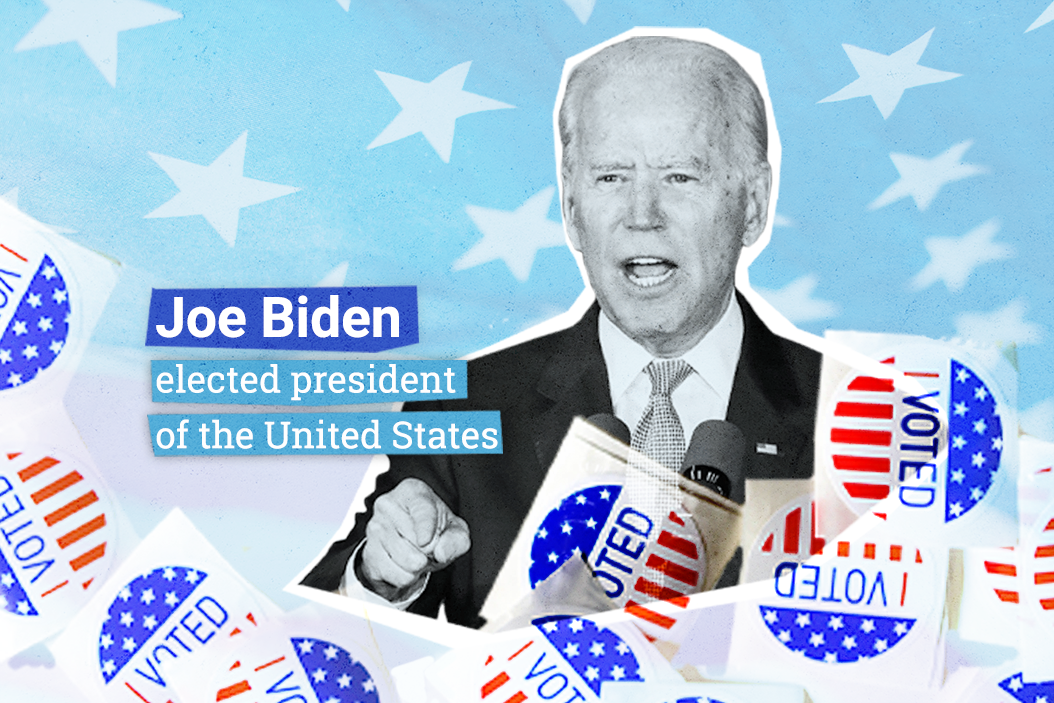Finally, (some) closure. Joe Biden will be the next US president.
The race has been called, and although President Trump says he will dispute the result with lawsuits in several battleground states, America's presidential election is (finally) a done deal.
What happens next? President-Elect Joe Biden will now go through an uncertain lame-duck period before he takes the oath of office. Once he's sworn in on January 20th, Biden will have Vice President Kamala Harris, the former Senator from California, at his side to help wade through a slew of pressing domestic and international challenges. Here are some reflections and observations on an historic day.
History in the making. In 11 weeks, Kamala Harris will become the first female vice president in US history. She will also be the first Black and South Asian person to assume this role, a momentous breakthrough — and an emotional milestone — for people of color in the United States. It is a particularly meaningful occasion for Black women, the backbone of the Democratic base. They were instrumental in ensuring Joe Biden's victory in the Democratic primaries and his clinching of the presidency. It's fair to say they felt the weight of this heated election on their shoulders.
The domestic landscape. Joe Biden and Kamala Harris will have their work cut out for them. President Trump has already made clear that he will not be a willing participant in the traditional handover of power, making for an excruciating transition period over the next 11-weeks. Meanwhile, the coronavirus outbreak in the United States is worsening by the day, and millions of Americans are still feeling deep financial pain because of the pandemic-induced recession. Republicans are also likely to retain control of the Senate, which would make it very difficult for Biden to pass ambitious legislation on climate change, immigration and healthcare.
Foreign policy. Biden's victory comes just days after the US — the world's second largest emitter of carbon — officially exited the Paris Climate Accord, the first country in the world to formally withdraw. Biden has said he will rejoin the Paris Climate Accord from the get-go (according to the accord's terms rejoining requires one month's notice), however there are compliance issues Biden will have to address in order to rejoin.
When it comes to China, Biden is not expected to be soft on Beijing. He has said he will focus on getting all US allies in Europe and Asia on the same page to counter China's global aggression. Biden also wants to return to the 2015 nuclear deal with Iran, another major Obama administration international agreement that President Trump walked away from. However, he said this is contingent on Tehran's willingness to comply with all of the deal's terms.
The American people remain bitterly divided. But it's also clear that many are sick and tired of political drama, toxicity, and chaos. Can Biden and Harris unite a fractious nation — one that voted in record-breaking numbers on both sides?